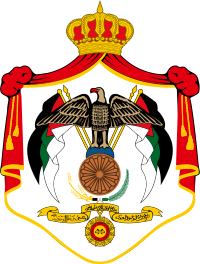
Back الانتخابات النيابية الأردنية 2016 Arabic জর্ডানের সাধারণ নির্বাচন, ২০১৬ Bengali/Bangla Ιορδανικές γενικές εκλογές (2016) Greek انتخابات سراسری اردن (۲۰۱۶) Persian Élections législatives jordaniennes de 2016 French Парламентские выборы в Иордании (2016) Russian 2016年約旦大選 Chinese 第22屆約旦國會選舉 ZH-YUE
| ||
130 seats in the House of Representatives | ||
|---|---|---|
| Turnout | 37% | |
|
| ||
 |
|---|
|
|
|
|
General elections were held in Jordan on 20 September 2016 to elect the 18th House of Representatives. The elections were announced after parliament was dissolved by King Abdullah II on 29 May 2016, with the King appointing Hani Mulki as interim Prime Minister following the resignation of Abdullah Ensour.
Following electoral reforms announced in 2015, the elections were the first since 1989 to be held primarily under a form of proportional representation; intervening elections had been held under the single non-transferable vote system, which systematically disadvantaged Islamist political parties, and had been introduced after they won 22 of the 80 seats in the 1989 elections. The reforms led to opposition parties deciding to contest the elections, including the Islamic Action Front (IAF), the political arm of the Muslim Brotherhood, which had boycotted several previous elections, including in 2010 and 2013. Splits in the Muslim Brotherhood before the elections led to the defection of hundreds of Muslim Brotherhood figures to form a new, supposedly more moderate party.
The IAF contested the elections as part of the National Coalition for Reform (NCR) alliance, which included Christians, Circassians and women. Despite being expected to win 20–30 seats, the alliance won only 15 seats, of which 10 were IAF members. The secular Ma'an list won two seats in Amman's third district, gaining parliamentary representation for the first time. Women made historic gains, with 20 of 130 elected members being female, an increase from 18 of the 150 seats available in the 2013 elections. Voter turnout was reported to be 37%, lower than previous elections and attributed to the inability of Jordanian expatriates (around one million) to vote due to the new electoral law. The elections were regarded as fair and transparent by international observers,[1] though Jordanian elections are often marred by significant deficiencies, such as a bias towards candidates loyal to the monarchy and other elites.[2]
- ^ Singh, Manjari (2017). "Parliamentary Election in Jordan, 2016". Contemporary Review of the Middle East. 4 (3): 297. doi:10.1177/2347798917711296. S2CID 149313840. Retrieved 5 March 2021.
- ^ Lust-Okar, Ellen (2006). "Elections under authoritarianism: Preliminary lessons from Jordan". Democratization. 13 (3): 456-471. doi:10.1080/13510340600579359. S2CID 143448303. Retrieved 5 March 2021.
© MMXXIII Rich X Search. We shall prevail. All rights reserved. Rich X Search